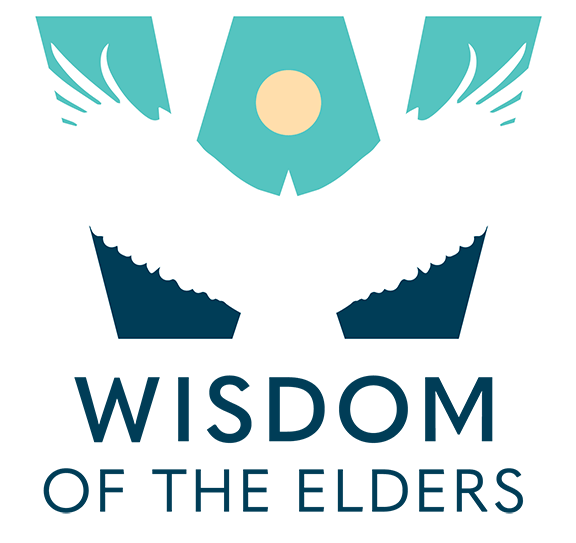The Arikara
with Nico Wind
[audio:https://www.wisdomoftheelders.org/s2_progs/204_tr.mp3]Arlie Neskahi:
If Lewis and Clark had made their journey through central North Dakota in 1960, they would have found that the Missouri River had become a lake. The Garrison Dam, constructed in 1951, was just one of many challenges to the Arikara, Mandan, and Hidatsa tribes. Now they are recognized as the three affiliated tribes, but 200 years ago, they were considered formidable traders, merchants and bankers along the Missouri River system.
Today on tribal rhythms, Nico Wind takes us to meet the Arikara, or Sahnish, people in White Shield, North Dakota on the Fort Berthold Reservation.
Music:
Handgame Song
Indiana University Archives

Missouri River bottoms, Knife River area. North Dakota. Courtesy of the National Parks Service. www.nps.gov
Nico Wind:
The Great Plains in August stretch like a golden sea of grass across the open land. It is a time of harvest and celebration, a time of renewal.
The Arikara people once gardened along the fertile bottom lands along the Missouri River in what is now South Dakota. Their history, like their soil, was rich in tales of spirits, powers, and mystery.
Of the Caddoan language group, the Arikara lived in round earthen lodges that were forty to seventy feet in diameter. The latest evidence indicates they had been migrating slowly upstream since prehistoric times, bringing with them ancient ceremonies for the renewal of the earth.
Music:
Arikara Corn Ceremony – track 21
Arikara Music
Curtis 57-014-f ec10-266-0085 Strip A
Archives of Traditional Music.
Mother Corn is at the center of Arikara traditional life. It is Mother Corn who brings the food and blessings, who renews the earth that brings the rains.
Yvonne Fox is an elder, a retired teacher, and a valued historian of the Arikara.
Yvonne Fox:
She was the corn and the corn is one of the most important things in our culture.
Music:
Arikara Music
Fox:
And we were under, under the ground. And we were not like humans or anything. It was more like a life force entity or whatever. And the chief sent a person down to the people to help them. And that was our mother corn.
And she came to the people and she, she then taught them how to live together, how to live peacefully. And she also then led them out of where they were, out into the world above, not in the sky, but onto the ground. And there was other animals that came along with her and helped the people.
Music:
Arikara Music
Music:
Dead Grass Song
Terry Howling Wolf
Wind:
In the chaos of the 1800’s, many Arikara warriors served as scouts to General George Armstrong Custer. Many of songs of the Dead Grass Society, a dance society and drum group, were about Arikara exploits as scouts.
One of the oldest drum groups known, the Dead Grass Society, got their name from the grasses flattened by so many dancing feet. Singer and Dead Grass Society member, Rodney Howling Wolf:
Rodney Howling Wolf:
When we were young kinds they used to have these medicine doings. They called them Kinau. They called it Hurau Supa and I remember I went over with my grandmother when I was pretty young and they used to sing, sing songs all night and sing medicine songs and they used to really smudge people. Everything was in the Arikara language.
Wind:
Virgil Chase is a Mandan Hidatsa Sioux and an Arikara elder.
Virgil Chase:
You see the Arikara people are a praying people who were known. My grandmother told me we were known for our power in prayer. We could take a person that was completely busted up. His legs and so forth completely smashed by the bison and they could cover them with herbs, sage and they would start their medicine doings the drums and they would pray over him and cover him. And when they took the cover off, he was whole again. They had the power to do that them days.
Wind:
One of the oldest drum groups known, the Dead Grass Society, got their name from the grasses flattened by so many dancing feet. Singer and.Dead Grass Society member Terry Howling Wolf.
Terry Howling Wolf:
I was born 1936 in Elbowoods, North Dakota. My dad was Dan Howling Wolf. He belonged to the Dead Grass Society, and he had one of the sticks that he had the right to sit at the dead grass drum and sing. And that’s where I got to learn my songs from.
Music
Terry Howling

Missouri River near Pierre, South Dakota. Courtesy of the National Parks Service. www.nps.gov
Howling Wolf:
And then ah, like these four, these were like, you know, like the four directions, east, south, west, north. That’s what they represented. They say that drum is holy. And then they had ladies in the back that sang with these guys, four each. Her aunt was one.
Then they had a whistle. This guy carried a whistle, like when he goes to drum and he blew that whistle, and they’re supposed to start again.
And then a whip, they had a whip. Scout went around with that whip. Dancers, they all had to get up and dance.
Wind:
Shortly after this interview, Terry Howling Wolf passed on. The Arikara were known for their ability to see and predict, perhaps Terry knew when he sang this farewell song.
Music:
War Song
Terry Howling Wolf
Howling Wolf:
Like when they went on a warpath, they sang that song. “I’m only been here, just a short time.” They didn’t know if they were ever going to come back or not. They sang that song when they were going.
Wind:
For Wisdom of the Elders, I’m Nico Wind.
Neskahi:
Tribal Rhythms is written and produced by Milt and Jamie Lee, produced by Clark Salisbury and Larry Johnson, and hosted by Nico Wind.



